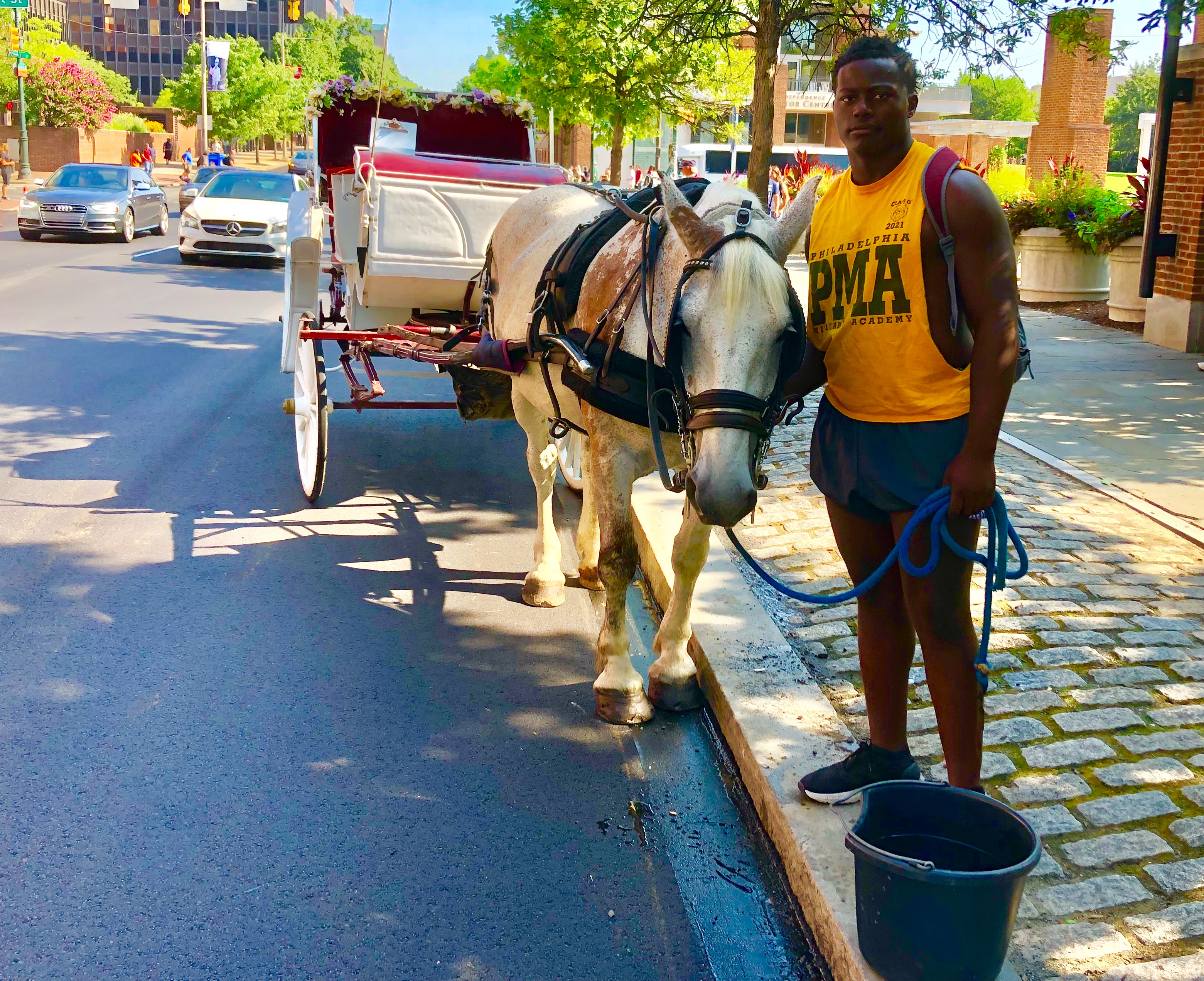Return of the horseless carriage
The familiar clippety-clop of horseshoes on asphalt in Society Hill could become a thing of the past.

Years of protests by animal advocates against horse-drawn carriages in the historic district around Independence Mall are moving toward a payoff, with a helping hand from technology, believes Janet White, director of Carriage Horse Freedom, an advocacy group.
The technology will be one issue discussed, says White, at a scheduled Friday meeting with stakeholders in the carriage horse drama. The technology: Battery-operated horseless carriages that will ride tourists around, but without the odor of manure and without the discomfort of horses, who were not meant to compete with cars, trucks and busses on city streets.
“It’s a question of when, not if, there will be a ban” on horse-drawn carriages, White tells me, pointing to many cities that already have bans. From as far away as Beijing to as near as Camden, horse-drawn carriages are on the sliding board to oblivion.
White thinks the change from horses to electric horse power could come as early as next year.
Not likely, says City Councilman Mark Squilla, whose district includes Independence Mall. He’s been hearing from animal advocates, and has been receptive, since his election in 2012, but he thinks White is a little over her skis.
As time goes by, “I see tourism without the horses,” except for special occasions, such as a wedding that would like to use a horse-drawn carriage. The electrics are “a great idea, but we are not close,” he says.
There are electric horseless carriages in use in some foreign cities, but they would not meet U.S. street standards, says Squilla.
That’s where the 76 Carriage Company might come in, says Squilla. It is the sole remaining company operating horse-drawn carriages around Independence Mall, and also operates the double-decker Big Bus, which it built itself. Squilla believes 76 Carriage might want to build horseless carriages and already has sent someone on a study mission to Guadalajara, Mexico, where electric carriages are in use. White says company president Mike Slocum is open to the idea of replacing horses with e-carriages. (Slocum did not respond to a voicemail and an email seeking comment.)
There are federal regulations for low speed vehicles, White agrees, but they are surmountable and she is hoping to bring a German horseless carriage for display and inspection to Philadelphia before the end of the year.
“Electric horse-drawn carriages are a win-win solution to the problem of the inhumane and dangerous horse-drawn carriages,” says White. “There is no job loss. The carriage company will experience increased profits with the e-carriages” and Philadelphia will get good press by becoming the first U.S. city to transition to e-carriages, she says.
Also supporting horseless carriages is the Humane Society of the United States. “Urban working and living environments pose potential health and welfare hazards for working equines,” Equine Campaign Manager Valerie Pringle wrote to Squilla.
Scheduled to attend the Friday meeting at the offices of the Philadelphia Convention and Visitors Bureau will be bureau chief administrative officer Angela Val, Janet White, Mark Squilla, Visit Philadelphia chief of staff Michael Newmuis, Global Philadelphia Association executive director Zabeth Teelucksingh, Delaware Valley Regional Planning Commission manager Karen Cilurso, and by video link, Dr. Clare Weeden, University of Brighton, UK, an expert on ethical tourism.
Horseless carriages are in use from Guadalajara to Munich, White tells me.
The only question is how fast the obstacles can be overcome.



